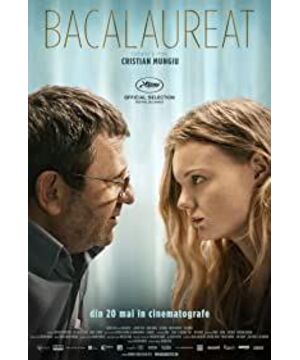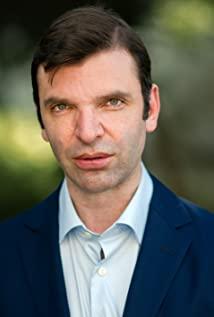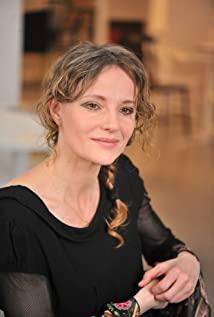The following pictures swaying in the dark, the dog barking lingering in the ears, the protagonist running in panic and anxiety... These pictures are easily reminiscent of another work by Christian Mongy "" Three weeks and two days in April".
This time, Mengji accurately analyzed various social problems in Romania at the moment with "Bacalaureat". The days of anxiety and hustle and bustle were not so much the graduation examination of the daughter as the human nature assessment of the father's generation. ...
Although the film has a certain continuation of the previous film in terms of image style, the intention and attitude are somewhat different from those in the past. At the age of Destiny, he has already put away the exposure of his youth, and has become more rounded in terms of narrative, but still very stable. It can be seen that the drama of Mengji's original restraint is still weakening, and the elaboration and rendering of events are reduced, gradually. It restores the plain and white habit of life, and then weaves a fine net that reflects the social status quo. However, even so, at the crucial nodes, the audience can still feel the shocking and human power. , has the effect of listening to thunder in a silent place.
It can be said that in the face of the social status quo, Mengji's tentacles are always stable, accurate and ruthless. Although his light and shadow attitude is not necessarily tough, he still uses images to show a series of current social problems in Romania: the pressure of further education, Disadvantages of education, bribery, security concerns, indifference, family estrangement, extramarital relations, etc., the film focuses on the daily life of a middle-aged anxious man with a lot of details, and then relies on the process of his problem-solving. Starting from the family, it gradually spread to various social levels such as schools, hospitals, communities, and the legal system. As a result, people saw scenes that were concise but incomparably clear.
The pattern of the film is neat and the script is very dense. It covers social phenomena in a "small to big" way, and also covers the inner feelings of the intellectuals. In this country, connections are crucial, and everything needs to be connected through the back door, which makes it easy for idealists to hit a wall and become discouraged.
The story presented in the film is very typical, and it is universally representative in many countries. The protagonist, Romeo Aldia, is a doctor. He has a very clear picture of the future of his daughter Eliza - when she is 18 years old, let her Study abroad and live. At the beginning of the film, his plan was close to success - his daughter won a scholarship to study in the UK, and she only needs to pass the graduation exam, which is a trivial matter for a scholar. However, small things can also become big things. An elbow injury in an attack is likely to destroy Eliza's bright future. No, it is the happy future envisaged by his father Ardia.
In terms of detail presentation, the film reflects the creator's observation and skill. For example, the protagonist goes to the principal for consultation. The principal's home in the shot is very luxurious, and a large-scale party is being held. When meeting the principal for the second time , the principal is also driving a luxury car, these details imply the principal's problems. And the image of the protagonist is also shaped into specific details, such as his interpersonal level, the family intersection with his wife, daughter, mother, and the social intersection with his lover, patient colleagues, and even the network of relationships. He is at the center of these intersections and is anxious. Heart, struggling.
Mongi said that such a role is indeed a microcosm of the generation of thousands of Romanian people. And this film, "for many middle-aged people, this is a film about getting old, a film about family, a film about 'life is different from imagination.'"
(magazine contract)
View more about Graduation reviews










